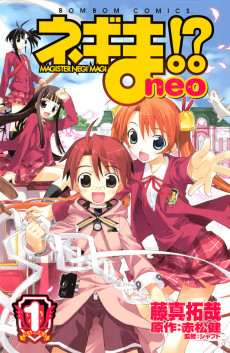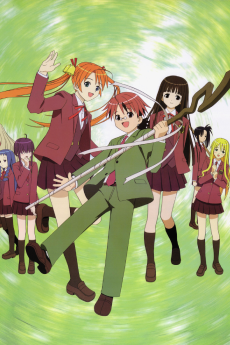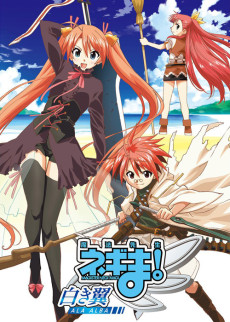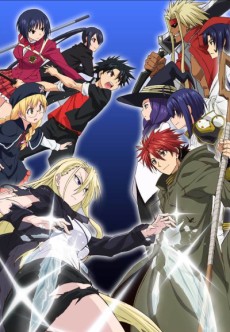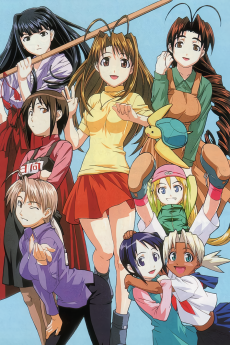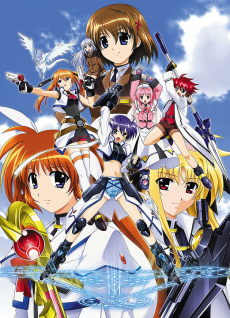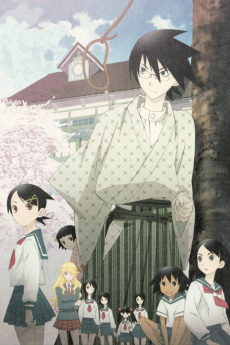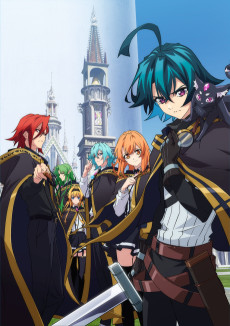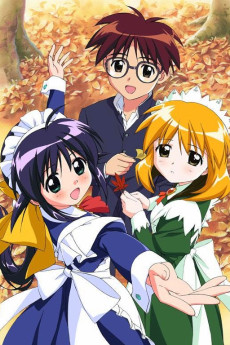NEGIMA!?
STATUS
COMPLETE
EPISODES
26
RELEASE
March 28, 2007
LENGTH
23 min
DESCRIPTION
A remake of the Negima anime with its own original story.
Wizard Negi Springfield may be a boy, but he has a man-sized job to do! Fresh from the Academy of Magic, Negi continues his training as an instructor at Mahora Academy in Japan. But before he can get his Masters in magic, the 31 schoolgirls of Class 3-A are gonna keep him up all night cramming for a final exam in will power. Temptation aside, Negi has more on his syllabus than flirting and spells. Darkness is closing in, and Negi is gonna need help from his lovely student bodies to drive the ghouls from their school. These girls want to prove that they're the best in class, and extra credit is available to the cuties that aren't afraid of after-hours phantom fighting!
(Source: DVD case)
CAST
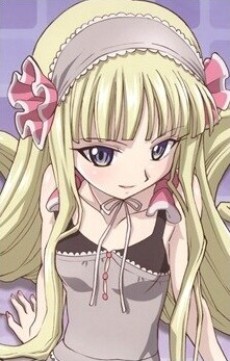
Evangeline Athanasia Katherine McDowell
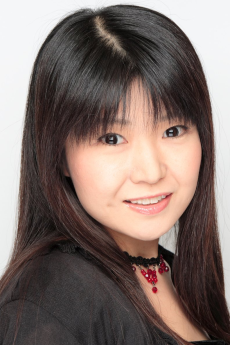
Yuki Matsuoka

Negi Springfield
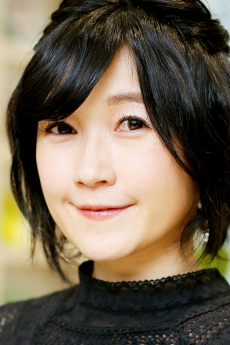
Rina Satou
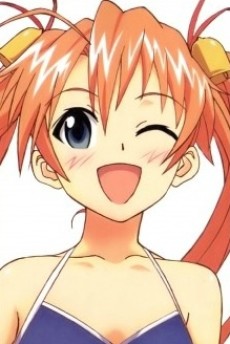
Asuna Kagurazaka

Akemi Kanda

Nodoka Miyazaki
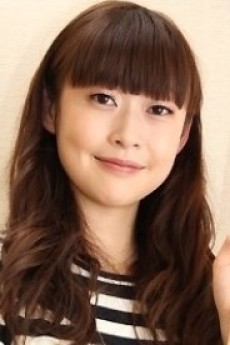
Mamiko Noto
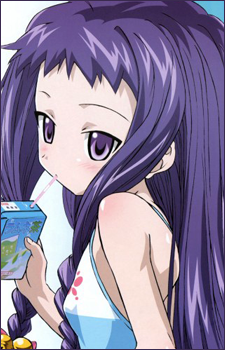
Yue Ayase
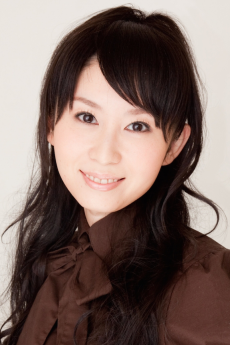
Natsuko Kuwatani

Setsuna Sakurazaki
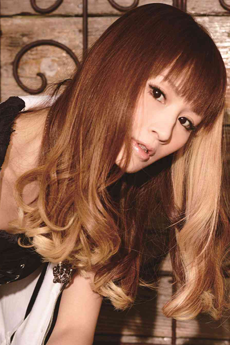
Yuu Kobayashi

Konoka Konoe
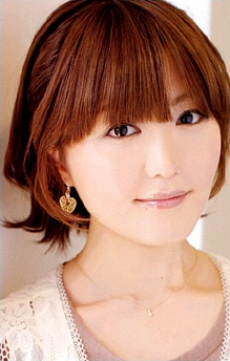
Ai Nonaka

Narrator

Mugihito
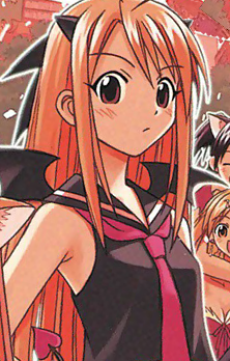
Chisame Hasegawa

Yumi Shimura

Chachamaru Karakuri

Akeno Watanabe

Ku Fei

Hazuki

Mana Tatsumiya
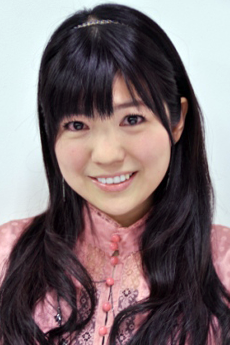
Miho Sakuma

Kaede Nagase
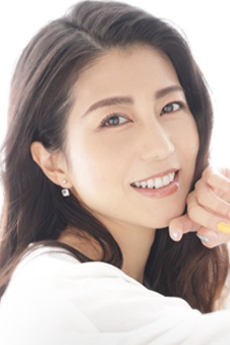
Ryouko Shiraishi

Albert Chamomile

Masahito Yabe

Makie Sasaki
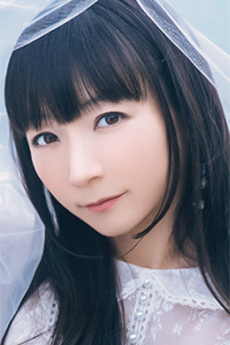
Yui Horie

Ayaka Yukihiro

Junko Minagawa

Chao Lingshen
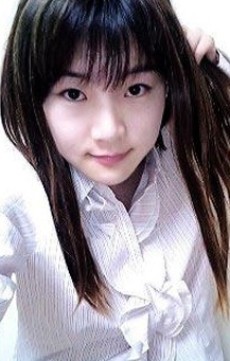
Megumi Takamoto

Sayo Aisaka
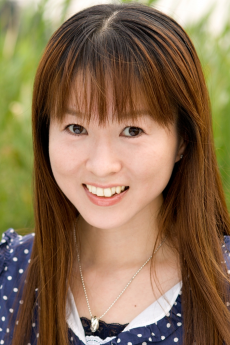
Yuri Shiratori

Zazie Rainyday
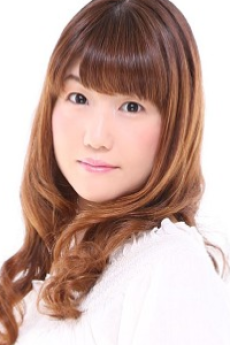
Yuka Inokuchi

Kazumi Asakura

Ayana Sasagawa

Akira Okouchi

Azumi Asakura

Haruna Saotome

Sawa Ishige

Misa Kakizaki

Shizuka Itou

Yuuna Akashi

Madoka Kimura

Nagi Springfield

Miyuki Sawashiro
EPISODES
Dubbed
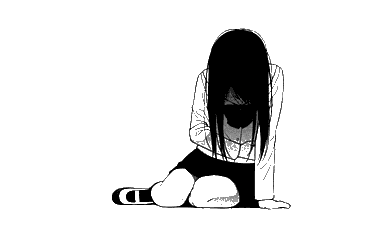
Not available on crunchyroll
RELATED TO NEGIMA!?
REVIEWS

TheRealKyuubey
70/100Like it or not, this is the best Ken Akamatsu adaptation we're ever going to get. In a good way.Continue on AniListTen year old Negi Springfield has just graduated as a full fledged wizard. For his internship, he’s been assigned to leave his home in Wales to assumea teaching position at Mahora Academy... A massive Japanese school where he’ll be stepping into the shoes of a middle school professor. On top of this, he’s been tasked with recruiting a number of magical partners to watch his back and battle for him in combat... And each contract must be signed with a kiss. Unfortunately, he’ll find out pretty quickly that he’s not the weirdest thing on campus... Mahora Academy is home to vampires, robots, ghosts, and a creeping dark shadow that threatens to consume the world around it. With so much otherworldly events happening all around him, did young Negi bite off more than he could chew? Or is this exactly the challenge he needs to rise to his full potential?
It really bugs me when people refer to anime, in and of itself, as ‘a style.’ They usually say it as a flimsy justification for bringing their favorite American cartoons into otaku conversations, but whatever the reason, that’s insultingly reductive to the medium, implying that all anime look the same just because they think ‘cartoon’ is a dirty word. I’d actually go as far as to say there are probably more individual styles in Japanese animation than in the west, since animation in the states tends to follow trends more often than not. Anime is more creator-driven, and is a far more productive environment for auteur directors and animators to experiment, cement their styles, and stand out against the shows surrounding them. One of these auteurs, who in my opinion is one of the more interesting of the bunch, is Akiyuki Shinbo. I’ve reviewed his titles before, with my opinions being on both ends of he spectrum... A trend that has not gone away, I promise. The one thing you can usually expect from him is a highly eclectic visual direction, which he can use differently for a variety of different story tones. He works well with fast-paced gag comedy like Pani Poni Dash, but he can also obtain cult hit status with a strange, creepy and even a little bit pretentious title like the Monogatari series, whose very atmosphere goes a long way in justifying the debauchery featured in the text. He basically invented the flirty ‘over the shoulder’ pose that’s become more commonly associated with Studo Shaft nowadays thanks to his consistent work with them. His best work however is probably shows like Madoka Magika and La Petite Cossette, where his experimental aesthetic took a more serious approach with actual depth. Negima?!, which I’m going to be calling Negi’06 from now on to preserve my sanity and yours, feels like an important chapter in Shinbo’s evolution as a director, because it contains hints of all of his other work. The base is obviously Pani Poni Dash... The goofy gag comedy, the quick editing and the litany of easter eggs in the background... But he also tends to frame his characters from the same suggestive angles as in the Monogatari series, and I swear to God some of these fantasy set pieces feel like early versions of the pocket dimensions in Madoka. It all comes together in a bizarre sort of synergy, and not just because his techniques complement each other, but because it sets a tone that feels intentionally disorienting. I don’t think this show was especially high budget, but there’s something about Shinbo’s unpredictable direction that makes it feel like cheap animation and extended key frames are just another part of the plan. There’s a lot of things you could call Akiyuki Shinbo, depending on which project you’re watching, but you can never call him lazy, and you can certainly never call him uninspired. I’m personally of the opinion that his body of work is more miss than hit, and I’ve found his visual style annoying more often than not, but I’ve never seen an anime attributed to him that felt like a minimal amount of effort went into it. I’ve accused him in the past of using obscure visuals to distract people from how boring his dialogue is, but I don’t feel that with Negi’06. You don’t have any of those awkward moments where a character is sitting down and dumping exposition, all while the cameraman gets bored and just starts filming in every direction possible to avoid just having a static shot. Rather, as weird and quirky as Negi’06 is, his direction just feels like a natural part of the universe of the story. You occasionally see characters in off-center distance shots from behind environmental set pieces, or in extreme close-ups where their faces are just out of frame, but it never takes you out of the moment. The music is lively and pulse pounding, full of tracks that are going to be stuck in my head for weeks after this review goes live. The opening and closing themes are so fun to watch, and for such completely different reasons, that I maybe skipped them a handful of times. Each.song is lovingly translated in the English dub, serving once more as proof that Funimation has a team of awesome singers on their books. As for the English dub itself, well, it’s time to talk about Jamie Marchi again. She wasn’t the only person to work on this dub, but it has her fingerprints all over it, and in fact, it was the first show that ever introduced me to the more slangy, reference-heavy side of her writing style, and I’m just gonna say it, this is probably the best place to experience it. That’s not to say it’s her masterpiece... I like to show people the Spice and Wolf dub whenever they call her the worst writer-director in the business(which she’s not)... But it’s still the best showcase of her comedic writing style, as it matches the material to an almost uncanny degree. Nearly the entire roster of Funimation’s female voice actors in the late 2000s were a part of this dub, most of them reprising their roles from Negi’05, and some of whom played multiple roles, making it the perfect practice show for aspiring voice chasers. This series was never going to be a tour-de-force of dramatic acting, but it constantly sounds like every actor involved was having a blast playing their roles, and it didn’t feel like any of them were phoning it in. Some highlights include Luci Christian, who turned her energy and enthusiasm up to twelve to play what is undeniably a bastardized version of Asuna; Monica Rial, who plays four separate roles that all sound completely different from one another; Laura Bailey, who nails both Ayaka’s haughty attitude and Evangeline’s pitch perfect british snark(while also making up for Brittany Karbowski’s noticeably corny attempt at the same accent) and Greg Ayres, the man who was born to play Negi, playing his best and most sincere incarnation of the character yet. Cherami Leigh, Brina Palencia, Trina Nishimura and Caitlin Glass also play two distinctly different roles each, although in some cases one role was way more memorable than the other, and despite this material being the absolute best platform for her eccentricities to flourish, Jamie Marchi reserved most of the slanginess for her own character, just like she did in Strike Witches. It genuinely sounds like most of the cast is having fun playing their roles, occasionally ad-libbing and throwing out pop culture references, most of which are baked into the original text itself. Some of these actors have become so iconically linked to the roles assigned to them that I can’t help but hear their voices when I read the manga, which is something I never felt while watching the 2005 series. I could never accept anyone else playing them, and for the record, I would have been perfectly fine with Funimation recasting Haruhi when they were dubbing The Disappearance of Yuki Nagato. It’s a fun, quirky dub that I highly recommend. Speaking of auteurs, if you’re familiar with the name Ken Akamatsu, you probably know him as a manga author whose work is notoriously difficult to adapt. He only has five original creations to his name, all of which arguably take place in the same universe(the connections are there), and they all share the same basic qualities in common... They all employ long term story-telling, their narratives are constructed out of intertwining story and character arcs, and they’re peppered with PG-13 fanservice that shows off just enough cleavage, underwear and bare butts to keep even the most immature of readers patient and mollified as the story unfolds. He basically uses fanservice as a crutch, and while it does feel a bit too pervy for comfort in it’s presentation at times, it never feels overtly sexualized, although there are a few too many uncomfortable age-gap romances across his body of work. I don’t think anybody’s ever going to adapt AI Love You... Which is fine, it was kind of mediocre anyway... And his one short story Itsudatte My Santa had an anime that’s been largely lost to time... So that leaves us with the big 3, which for Akamatsu consists of Love Hina, Negima and UQ Holder. The first two were adapted by Studio Xebec in the early 2000s, and they both suffered the same exact problems. Both series were completely sterilized of fanservice, and those long, intertwining story arcs I mentioned were chopped up and rearranged to fit the needs of the studio, creating two ugly Frankenstein adaptations with legendarily cheap animation to match. The results were dismal, but you can’t entirely blame Xebec(although they’re definitely culpable), because Akamatsu’s work just doesn’t translate well to screen. With the kind of stories he tells, you could never capture them faithfully without allowing an infinite number of episodes similar to Naruto or One Piece, and his work is just too niche and esoteric to support that approach, especially if you remove all the fanservice for the sake of appealing to a general audience. Then again, there have been several OVAs that tried to replicate the manga’s fanservice, and the results were extremely awkward. So, has any adaptation managed to rise to the challenge? It’s fair to say I’m a pretty hardcore fanboy of this franchise. I’ve experienced every piece of available Negima media, with the possible exception of any video games or radio dramas that might be floating around on the market. I’ve seen both TV series, both of which had their ups and downs. I’ve seen all the OVA episodes, and while a few of them were of high quality and captured portions of the manga accurately, they were still only fragments of an ongoing story. I’ve seen the finale movie, which basically shat the bed and left the party without telling anyone. I’ve seen the live action series all the way through twice(okay, that’s not true, the second time was with a Malaysian bootleg that was missing one episode), and as cursed as it is, it’s the only Negima adaptation to portray an awesome antagonist from the manga that no other titles have acknowledged as an antagonist. I’ve read all three manga, those being Negima itself, Negima Neo(the only incarnation of the story where Negi and Asuna end up together) and the highly questionable Negiho. With as much of the franchise as I’m familiar with, it’s a little disheartening to admit, but there really hasn’t been a single entity in the franchise that has faithfully captured Ken Akamatsu’s vision. Hell, that even includes the original manga. He was forced to rush the ending, foiling a lot of his long term ideas, and he was so disappointed in the way things turned out that he addressed his original planned ending as an ‘alternate reality’ what if scenario in the sequel series UQ Holder. I hate to say it, but when a creator’s vision is so ambitious that not even HE can do it justice, it goes to show just how cursed any future adaptation is going to be. It’s not popular or accessible enough to get the time it needs, it’s too risque all the way down to it’s core to be toned down enough to market, and the fanservice style doesn’t translate very well to animation... Is it even conceivably possible for a good Ken Akamatsu adaptation to exist? Well, going back to the first anime, it’s been critically maligned for years, but there are two parts of it that are weirdly beloved by Akamatsu fans. The first is the backstory episode for the ghost girl Sayo, which is considered something of an honest tear jerker, and the second is the finale, the final few episodes and how they play out. What’s interesting about these two moments, however, is that they’re NOT taken from the manga. They’re unique to Negi’05, they weren’t based on anything pre-established, and they weren’t beholden to anyone’s expectations. They have little to do with the Negima manga, and yet they perfectly capture the Negima spirit, so you have to ask... What if there was an entire season that was like that? What makes Negi’06 so unique, and what makes it stand out against the rest of the franchise, is that it took this idea and ran with it. It takes the initial premise of Negima and it’s cast of characters, throws them into a brand new story arc that’s strong enough to stand on it’s own while still FEELING like a Negima story, and it borrows just enough material from the manga to flesh out the world and a few crucial characters. It starts out largely the same, with Negi transferring to Mahora Academy to begin teaching, only to be discovered by Asuna, and then battling with the vampire Evangeline and her partner Chachamaru. It’s the standard Negima opening, but several things are just... different. You notice them right away, as the visual style is heavily reminiscent of Pani Poni Dash, but the same style also translates fluidly to the magic action. Following Evangeline’s defeat, things only continue to go off the rails. Several characters who were supposed to get the limelight much later on are included in the cast immediately. Negi’s ermine companion Chamo doesn’t show up a few chapters in, he’s there with Negi from the start. Setsuna’s relationship with Konoka isn’t explored in the Kyoto arc, because in this series, there IS no Kyoto arc, she’s just by Konoka’s side from the start, and you can tell what she’s like right off the bat. Other characters who were introduced in small arcs throughout the manga do have their introductions peppered in throughout the first half of the series, but it’s never in the way you remember, or in a way you expect. Some characters do get nerfed more than others... The most egregious of which is Asuna, who went from a fantastic protagonist in the manga to a hapless idiot who cares more about random obsessions than the plot or her friends, and who no longer has that special sibling-like relationship she had with Negi in the manga... But her aside, most of the cast feels like themselves, just without the hundreds of chapters of development that originally went into them. Some characters who would be explored much later in the manga are rewritten and used as background gags, with one particularly interesting example being Misora Kasuga, who didn’t really come into her own as a character until halfway through the manga, but in this version, she’s just a yoga not who occasionally does funny poses. On the flip side, you have a character like Makie Sasaki, who was originally supposed to be a random member of the sporty girls before her shocking domination of the first few popularity polls lead to Akamatsu pushing her into the spotlight, basically giving her a role in the supporting cast that previously belonged to the underperforming Sakurako Shiina. In Negi’06, she’s one of the focal comedic characters, and she gets a few memorable running gags of her own throughout the series. Characters like Zazie, who were criminally underutilized in the manga, are given small but memorable comedic background roles. The world has also gone through some unique changes. Rather, there doesn’t even seem to BE much of a world outside of Negi, his class and his family back in Wales. There are a few new rules that are unique to this series, such as the pactio cards having Dud, Cosplay and Rare forms that work at random depending on how you draw them. Negi will be turned into an animal if he’s discovered as a mage, a mysterious darkness is being spread by malevolent fairies while girls from Negi’s class are being controlled like puppets seemingly at random, and there’s almost no fanservice outside of barbie-doll transformations and the occasional swimsuit. I’m serious, I think I noticed maybe one panty shot throughout the entire series, and unlike previous Akamatsu adaptations, it doesn’t feel like anything’s missing as a result. The original manga contained some questionable elements, such as some of Negi’s students having genuine feelings for him despite him being ten years old(technically nine) and it felt at times like if the genders were reversed, this franchise would have been cancelled faster than Amazon Prime at the end of a free trial. And yet, Negi’06 treats all of that like a ridiculous joke, making it feel far easier to swallow, even for hardcore fans. There’s even an episode where the female cast gets turned into chibi lolis and Negi has to take care of them, and it actually doesn’t feel creepy or uncomfortable. If that doesn’t sound like high praise to you, than you haven’t read Negiho. All together, Negi’06 was constructed in a way that it could overcome all of the pitfalls of adapting an Akamatsu project. If an important character had a major story arc that was important to their introduction, then it killed the arc and salvaged the character. Thus, instead of several interconnected arcs that would otherwise need to be chopped up and rearranged to fit a 26 episode layout, it’s able to focus on one self-contained story. It doesn’t need constant fanservice, because Shinbo’s visual style is more than enough to keep the viewer’s attention. By changing the rules, it’s able to have it’s own unique identity, and do it’s own thing without feeling derivative. Manga purists will probably feel unsatisfied with just how much was lost in translation, and I get where they’re coming from, but it doesn’t feel to me like anything was cut out of a sense of laziness or malice. I don’t know if it’s feasible, or even possible, to produce a faithful adaptation of Negima, so Akiyuki Shinbo went in the other direction and aimed to capture the spirit of Negima rather than the text. So, faithfulness and accuracy aside, is it any good? That’s... surprisingly a tricky question to answer. First off, it’s a comedy, and comedy is of course subjective. It’s a random gag show full of pop culture references and a non-stop assault of blink-and-you’ll-miss-it easter eggs and sight gags, and while I do personally enjoy it, I have seen the same type of comedy used in anime before that annoyed the crap out of me, so I can’t guarantee this kind of thing will work for you. What I can say is that none of it ever feels cliched, and there is genuine imagination and effort put into the vast majority of the gags. I also can’t really say whether it works as a standalone or not, as I already had an intimate knowledge of the source material by the time I watched it, and I appreciate it largely from the perspective of a Negima fanboy, and I legitimately have no idea whether or not I’d enjoy it without all that context. There’s parts of it I’ve enjoyed in other anime, and parts of it I didn’t enjoy in other anime, and I’m not sure how I’d reconcile the two if I had to. I feel like most people who watch this show will likely already be familiar with the source material, so if you’re not, approach with caution. In a good way. Negima?! Magister Negi Magi is currently available from Funimation in a blu-ray combo with the first series and two OVA episodes, as its previous releases(including the SAVE edition) have gone out of print. The other OVAs and finale film are not available stateside, nor is the live action series(which is a damn shame because that show was weird as fuck) but pretty much every manga adaptation is available from Kodansha. I genuinely do not know how qualified I am to talk objectively about this show. You probably picked up some fanboy ramblings and insane levels of bias in this review so far, and yeah, that’s all there. I do feel like I have the ability to acknowledge the flaws in my favorite media, as Negima is my favorite manga of all time, and it is quite flawed, but I’m not infallible. For example, I am well aware of the fact that Negi’06 did Asuna dirty with the way it rewrote her, but on the other hand, I’ve played her in an online roleplay before, and my portrayal was much closer to this version of her character than the manga version. I appreciate this series for managing to pull off what no other Negima adaptation was able to pull off... The fact that it tells a self contained, satisfying story that doesn’t feel incomplete or cheapened... And I’d love to hear what people who went into it blind thought of it, but on it’s own merits, it’s too weird to work for every viewer, and unlike certain other Akiyuki Shinbo projects, it doesn’t have the depth to back that weirdness up. I give Negima?! Magister Negi Magi a 7/10.
SIMILAR ANIMES YOU MAY LIKE
 ANIME ComedyGo-toubun no Hanayome
ANIME ComedyGo-toubun no Hanayome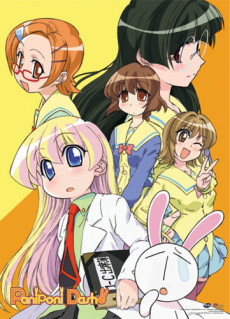 ANIME ComedyPaniponi Dash!
ANIME ComedyPaniponi Dash!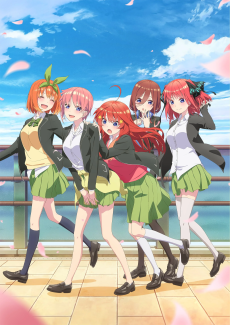 ANIME ComedyGo-toubun no Hanayome ∬
ANIME ComedyGo-toubun no Hanayome ∬
SCORE
- (3.3/5)
MORE INFO
Ended inMarch 28, 2007
Main Studio Shaft
Favorited by 123 Users



